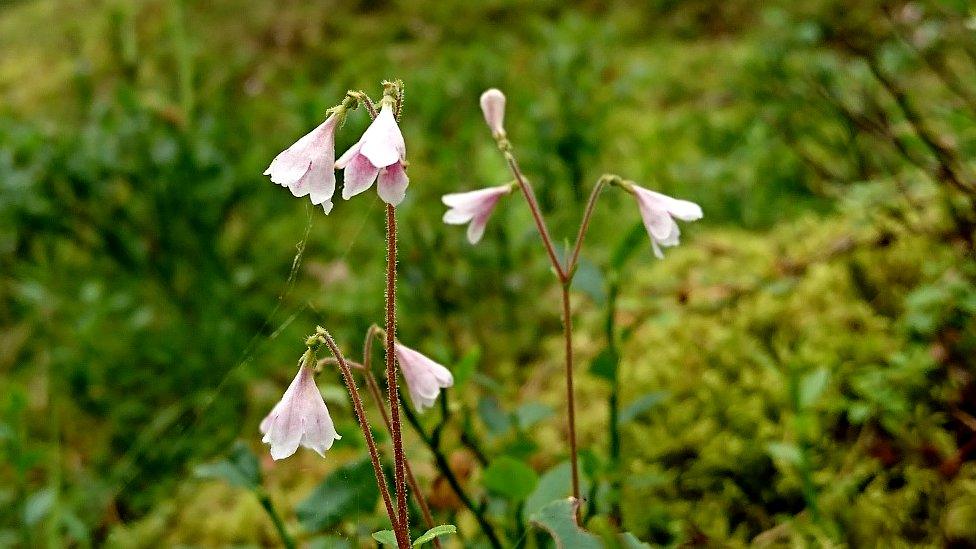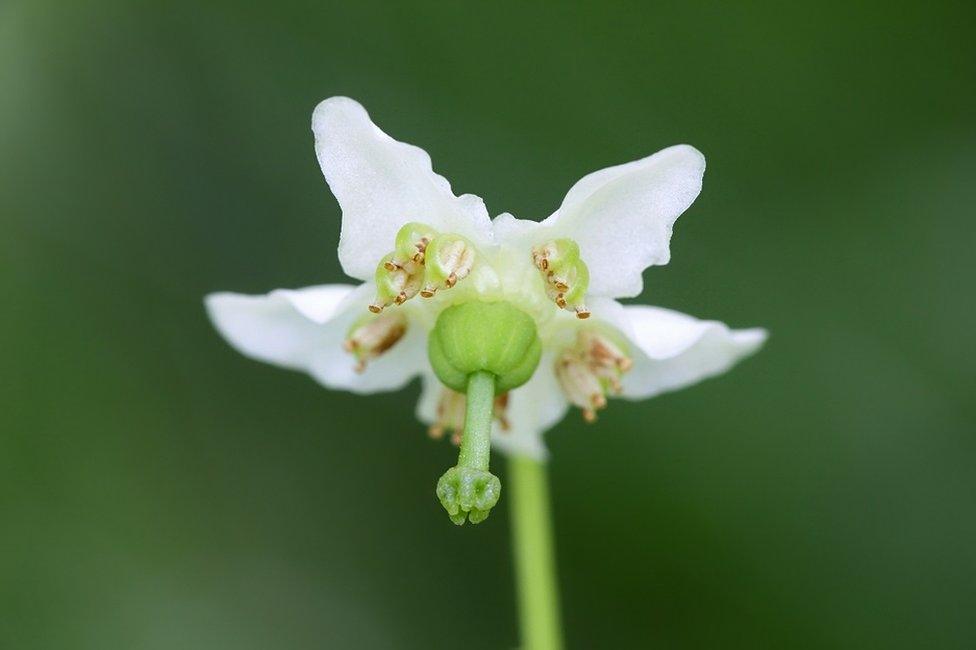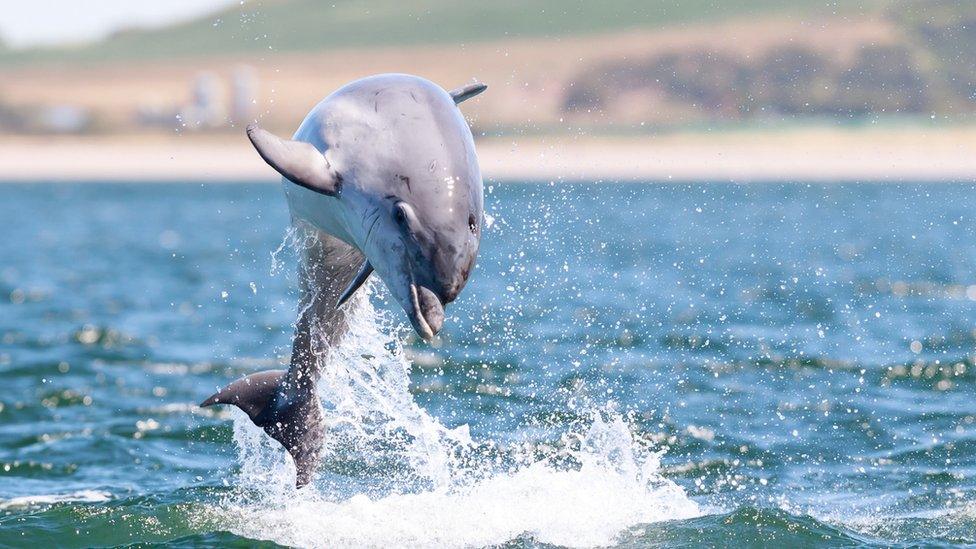Rare Highland twinflower could be saved by lottery funding
- Published

Loss of habitat has left the Highland twinflower in danger of being wiped out
A rare Scottish flower could be saved by a project which has secured lottery funding.
The Highland twinflower is one of a number of plants which could be helped to survive.
Once widespread in ancient Caledonian pine forests, habitat loss has left it in danger of being wiped out.
Plantlife Scotland said the £224,300 grant from the National Lottery Heritage Fund could "turn around the fortunes" of rare species.
The project supported by the grant will train volunteers to take part in targeted reintroduction schemes.
They will also work on the restoration of grassland and meadows.
Fragmentation of habitat has left the Highland twinflower so isolated that it cannot interbreed.

The project will also focus on the future of the one-flowered wintergreen
A remaining stronghold for the plant is the National Trust for Scotland's Mar Lodge Estate National Nature Reserve near Braemar in the Cairngorms National Park.
Head of Plantlife Scotland Alistair Whyte said: "The Cairngorms are home to some of our rarest and most threatened wild plants.
"This National Lottery Heritage Fund grant will allow Plantlife Scotland to work with local communities to make a real difference for these amazing species.
"We'll be training volunteers, working with local landowners and businesses, and helping communities take practical action for wild plants."
He added: "Many of these species have a special place in our culture and history but their future is under threat.
"This project will help us turn around the fortunes of Highland specialities like twinflower, one-flowered wintergreen and a whole host of other rare plants."
Whales and dolphins
The expansion of an existing citizen science scheme to monitor whales, dolphins and the harbour porpoise will be supported by another lottery grant worth £190,400.
Run by the marine charity Whale and Dolphin Conservation, Shorewatch trains volunteers to identify and scientifically record the movements of legally protected species.
The funding will support its work in the Northern Isles.

Dolphins can be seen in Scottish waters, including in the Moray Firth
Shorewatch policy officer Katie Dyke said: "Whales, dolphins and porpoises are facing a number of threats in UK waters but it is not too late to make a positive change.
"Creating a connection with the ocean and these incredible creatures is key to empower communities to protect them.
She added that the grant would help people "better understand how species use the waters around the Northern Isles".
"It will allow us to work closely with local committees and nurture an education, connection and love for these amazing creatures we are lucky enough to be able to watch from our coastline," she said.